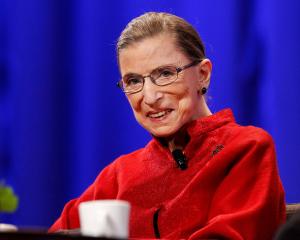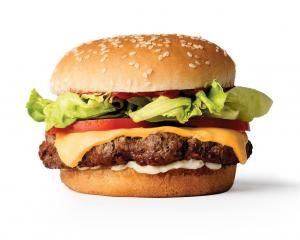
Supermodels came to the fore in the 1980s, driving the commercial dollar towards an idealised standard of beauty.

I am not always a fan of social media platforms like Facebook, Instagram and TikTok. They have certainly played their part in the cultivation of an image-obsessed society. The pressure on young females and males to look good is all-encompassing and playing out in increased rates of eating disorders (for both genders) and anxiety.
Yet, and this is what I find exciting, these same platforms are the launch pads for new visions and young entrepreneurs are challenging corporate ideals of beauty - and it’s not tokenism. I have seen young female entrepreneurs develop exercise-wear brands - Hine is a New Zealand example - for multiple body shapes. Their "models" are their community, proudly wearing skintight, comfortable exercise wear, regardless of their size - and frankly, they look wonderful.
I have seen entrepreneurial companies, such AWWA which sells period-proof underwear using all-sized models wearing underwear with no filters and no fear. This kind of messaging is enlightening and a relief as to the reality of what it is to be female. I for one, having menstruated for over three decades, have never experienced a period that is the colour blue, despite what Johnson & Johnson would like me to believe.
There is a revolution happening, led by young females, into what a modern fashion industry looks like and what it is to be a confident female. Multi-size, multi-ethnicity and gender fluid - it doesn’t matter. The message is "you’re OK".
Does this make some people uncomfortable? Oh yes it does and here is an example from one of our community’s so-called leaders. An Otago regional councillor posted on his personal Facebook account: "when did girls with lovely faces/breasts but unhealthy bums/legs become sexy?".
Oh dear! Yes, Mr Councillor, you are right, there is freedom of speech, but there is also creepy voyeurism and the audacity to actually believe young women would give a jot for what you think. And if the comment was meant to be about "obesity and health", then why talk about faces and breasts? Time to move on in more ways than one.
The beauty revolution means a fight against misogynist judgement of female form and the commercial drivers which create an environment where females never feel like they are good enough, sexy enough or beautiful enough. For me, it can’t come fast enough - how can we empower this movement?
For the revolution to really pick up steam, it’s time to start taking young female entrepreneurs seriously; they understand ways of marketing and connection that the large corporates, mostly led by middle-aged men, don’t understand.
These youngsters understand that authenticity does not mean slapping a sustainability sticker on a package or using a plus-sized or non-white model for less than 1% of your marketing material. These young leaders understand that a company with real vision is inclusive and sells products to help people feel healthier and better about themselves and their environment. They make their buyers part of a community, something special, a movement.
I totally understand that most middle-aged men are not misogynists. In fact, many I know are desperately concerned for their daughters as they navigate body-image challenges in their teens and 20s. These men understand their daughters, sisters, wives and mothers are worth far more than corporate fashion’s narrow ideal of beauty.
The challenge we have as a society is that a disproportionate balance of power and money lies in the hands of a very few older men who are largely unaware of, or confused by, this movement. To make the revolution really fire, I would love to see these few, with the money and power, realise how they might be able to support change - by investing in a new generation of entrepreneurs, which includes young females.
I am invigorated by what I see emerging and what needs to happen now is a shift in awareness. In the words of Australian activist GD Anderson: "Feminism isn’t about making women stronger. Women are already strong. It’s about changing the way the world perceives that strength."
- Anna Campbell is a co-founder of Zestt Wellness, a nutraceutical company. She also holds various directorships.












